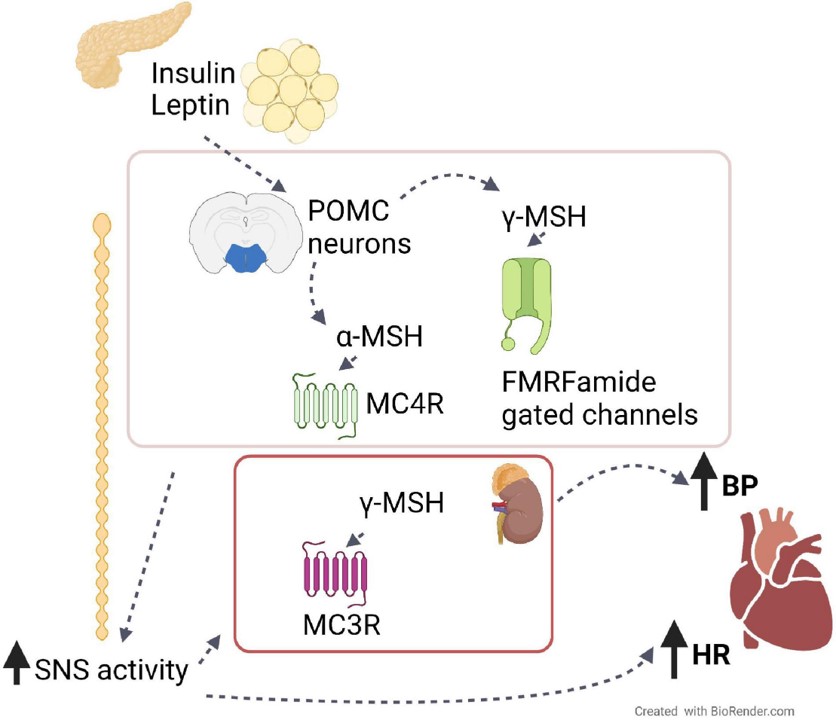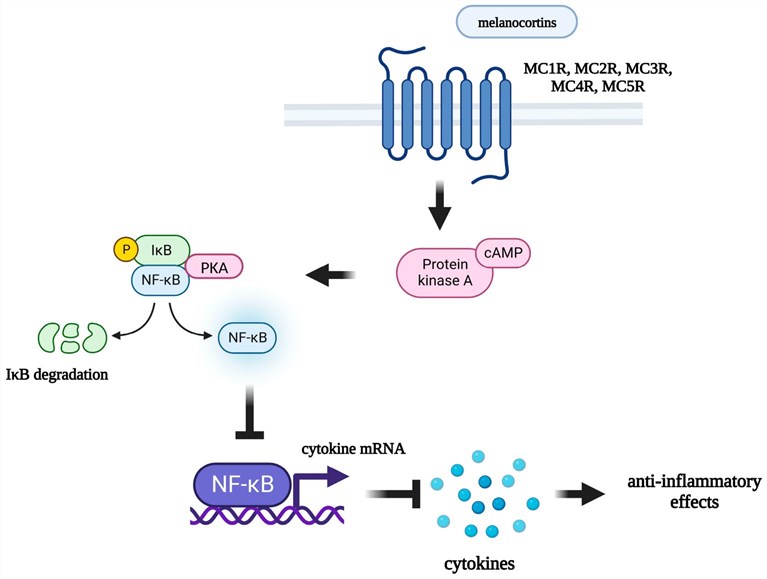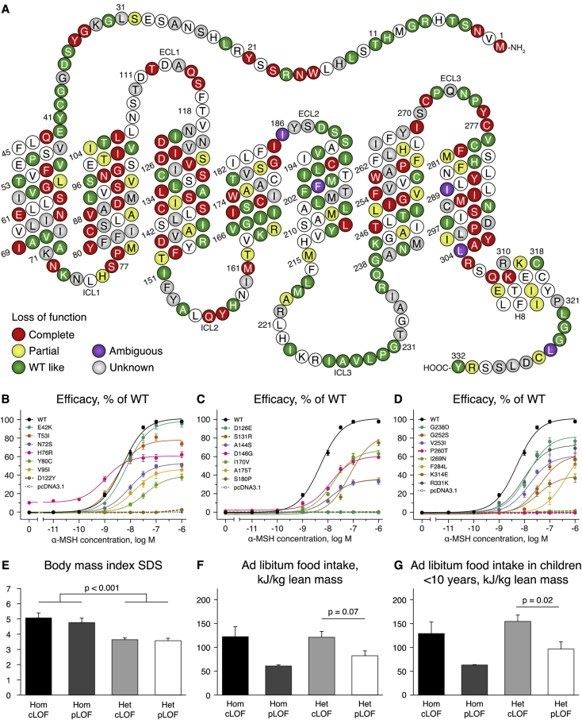Hi-Affi™ In Vitro Cell based Melanocortin Receptor Functional Assay Service
Melanocortin Receptors: Why They Matter
MC1R, MC2R, MC3R, MC4R, and MC5R are the five subtypes of the melanocortin receptor, a family of G-protein coupled receptors. They play a variety of important roles, including eating behavior, energy balance, stress response, etc. Regarding this context, many significant degenerative illnesses involve them, such as obesity and other food disorders, cancer, diabetes, and plenty more. Nevertheless, after many years of work, there are just a few drugs targeting this family of receptors and their inherent ligands, the melanotropins.
 Fig.1 The melanocortin system's effect on BP and HR.1
Fig.1 The melanocortin system's effect on BP and HR.1
Our Hi-Affi™ In Vitro Cell-based Melanocortin Receptor Functional Assay Service
Through the integration of our experience and expertise, Creative Biolabs has innovatively developed a Hi-Affi™ in vitro cell-based melanocortin receptor functional assay service and welcomes global customers to inquire and order.
Our Hi-Affi™ in vitro cell-based melanocortin receptor functional assay service incorporates the advantages of cell-based assay with melanocortin receptors functional assay, which is capable of being applied to efficiently measure the receptor activation/inhibition and assay compounds. The principle of this assay is to examine the accumulation of the second messengers triggered by the reaction of melanocortin receptors with ligands. Throughout this entire procedure, we provide comprehensive, customized, top-notch services that cater to the diverse requirements of global customers.
 Fig.2 Melanocortin receptors mediating anti-inflammatory effects.2
Fig.2 Melanocortin receptors mediating anti-inflammatory effects.2
Benefits for You
Constantly listening to our customers' suggestions, Creative Biolabs strives tirelessly to improve and optimize technological innovations. Simultaneously, our Hi-Affi™ in vitro cell-based melanocortin receptor functional assay service will benefit global customers with:
 Fig.3 Advantages of our Hi-Affi™ in vitro cell-based melanocortin receptor functional assay service.
Fig.3 Advantages of our Hi-Affi™ in vitro cell-based melanocortin receptor functional assay service.
Representative Data
Representative Data: Melanocortin 4 receptor (MC4R)-expressing neurons are the target of pro-opiomelanocortin (POMC)-derived peptides, which decrease body weight. The candidate is a very powerful MC4R agonist that causes weight reduction in obese people with full POMC deficiency as well as in obese animals with an unhealthy diet. This study examined how the candidate affected cellular mutant MC4Rs. The candidate may disproportionally repair signaling by a subset of highly defective MC4R mutants, as shown by the findings, and is substantially more powerful at MC4R than the natural ligand alpha-melanocyte stimulating hormone.
 Fig.4 Categorizing MC4R mutations based on their genetic and molecular characteristics.3
Fig.4 Categorizing MC4R mutations based on their genetic and molecular characteristics.3
Work with Creative Biolabs
Constantly listening to our customers' suggestions, Creative Biolabs strives tirelessly to improve and optimize technological innovations. For more details about our Hi-Affi™ in vitro cell-based melanocortin receptor functional assay service, please don't hesitate to contact us. We are sincerely looking forward to being partners with global customers.
References
-
Copperi, Francesca, and Jung Dae Kim. "Role of the melanocortin system in the central regulation of cardiovascular functions." Frontiers in Physiology 12 (2021): 725709.
Distributed under Open Access License CC BY 4.0, without modification. -
Markov, Dmitrii D., et al. "The melanocortin system: A promising target for the development of new antidepressant drugs." International Journal of Molecular Sciences 24.7 (2023): 6664.
Distributed under Open Access License CC BY 4.0, without modification. -
Collet, Tinh-Hai, et al. "Evaluation of a melanocortin-4 receptor (MC4R) agonist (Setmelanotide) in MC4R deficiency." Molecular metabolism 6.10 (2017): 1321-1329.
Distributed under Open Access License CC BY 4.0, without modification.
For Research Use Only.
